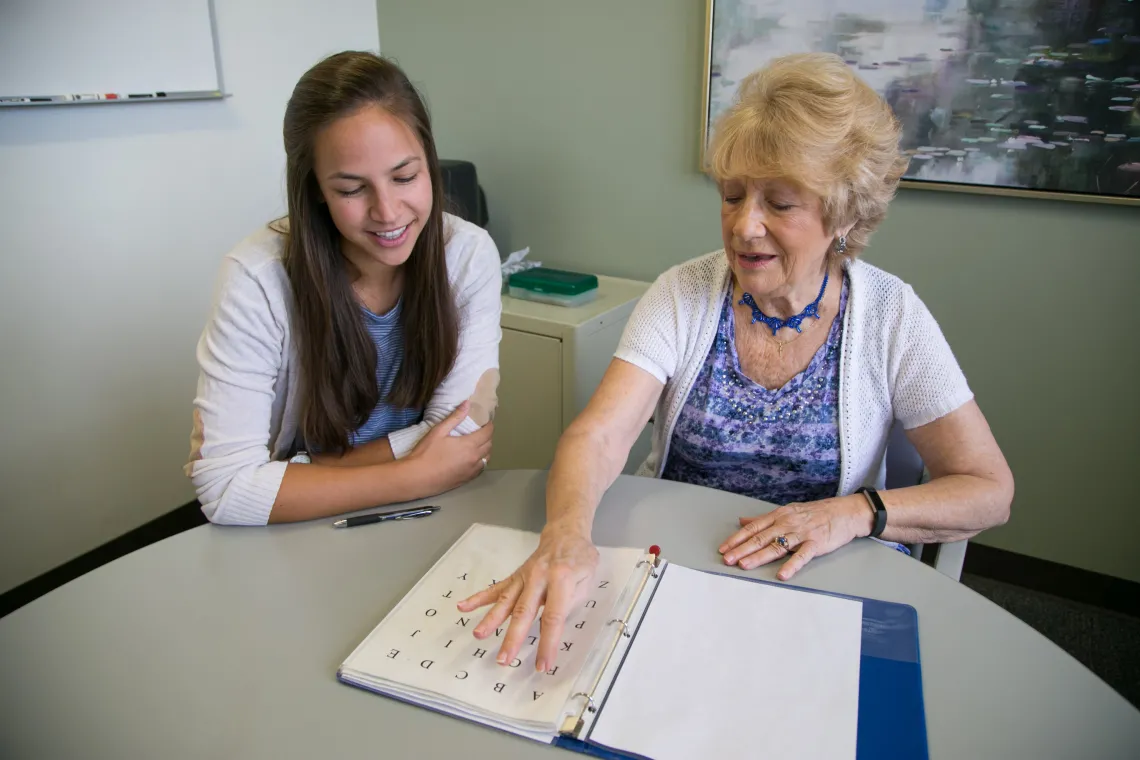New Gift to the Aphasia Scholarship Fund

We are pleased to announce a generous gift from Ellen Kaye and the Maltz Family Foundation to the Aphasia Scholarship fund in the Department of Speech, Language, and Hearing Sciences at the University of Arizona. For the past nine years, the Maltz family has provided crucial financial contributions to the Aphasia Program, that have enabled the department to treat 39 patients, assist 39 family members and caregivers, and train our students.
The Aphasia Program offers individual and group therapy to individuals who have had brain injury, most commonly stroke, and consequently struggle with the expression or comprehension of speech and the ability to read or write. With Ms. Kaye’s support, the department provided services to 78 individuals: 39 persons with aphasia and 39 family members, care providers, and supportive friends over the past year.
The Program has improved the lives of many of individuals with aphasia. One patient had been a world traveler prior to her stroke. Although she hasn’t been able to return to air travel, she has focused her individual sessions on topics related to past, and potential future travels. She uses her Oxford Picture Dictionary to identify countries as well as specific tourist attractions of interest to her. She finds it highly motivating to incorporate the vocabulary from favorite travel destinations into therapy exercises to regain her speech.
The Department is able to attract the nation’s top master’s and doctoral students who are drawn to the highly regarded research and clinical work being done in the area of aphasia. The sustained support by Kaye enables unique training opportunities for the next generation of speech-language pathology health-care providers. Last year’s gift provided clinical opportunities to 15 graduate clinicians, 4 undergraduate clinical assistants, and 2 speech language pathology assistants-in-training. One student said the following of her work in the clinic;
“Leading aphasia groups has been one of the most impactful experiences I’ve had as a student clinician. The group members, as well as their family/caregivers, expressed that coming to aphasia group is the highlight of their week and a very meaningful part of their lives. Working with these individuals made me feel like I was making a direct impact on their quality of lives, which is very motivating as a student in the thick of a challenging graduate program.”
All of this great work would not be possible without the continued support of the Kaye. We are extremely grateful for the ability to expand the aphasia program and, ultimately, create a better future for our students and those affected by aphasia.

